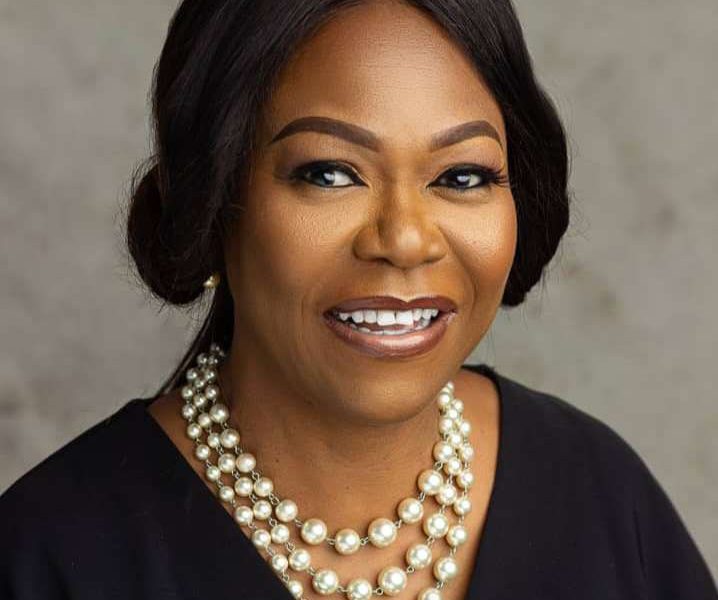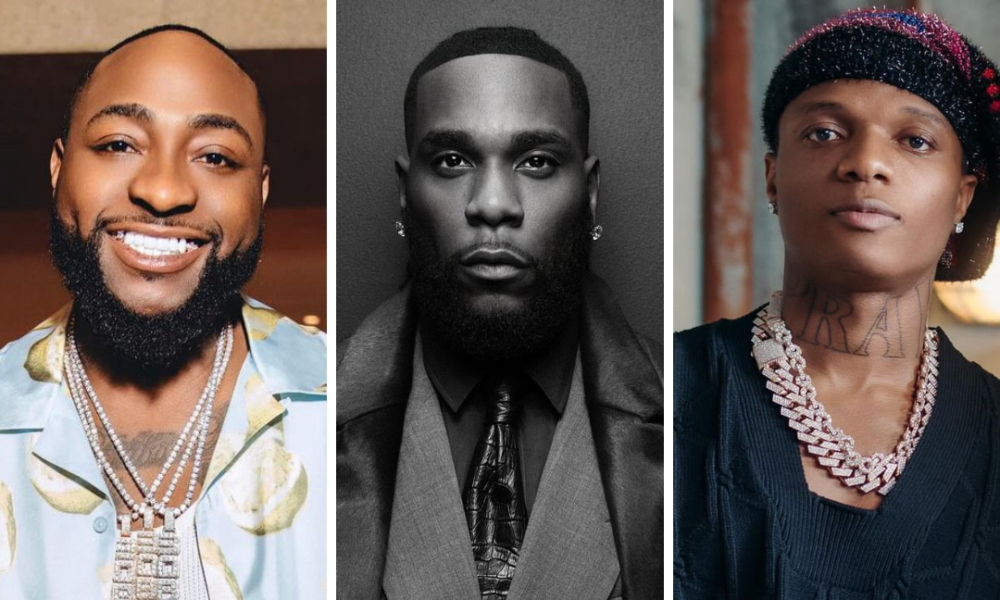Switzerland’s ambassador to India Dr. Ralf Heckner has backed strong trading and political ties with India hoping that the India-European Free Trade Association (EFTA) free trade talk will “accelerate” soon. European Free Trade Association is a free trade area between 4 countries–Iceland, Liechtenstein, Norway and Switzerland.
Speaking to our diplomatic correspondent Sidhant Sibal, Ambassador Heckner said, the Swiss “state secretary for economic affairs will visit Delhi at the beginning of February and both sides will look into negotiations and try to figure out how to accelerate the negotiations and try to wrap them up.” He also indicated that the President of the Swiss confederation will be visiting India later this year and for this, both sides are in contact.
On the issue of illicit money issue, he pointed to the 2018 India-Switzerland automatic exchange pact and on the basis of that “on a yearly basis between September-October, both countries are exchanging information on bank accounts”. Switzerland, for the first time in its history also became a non-permanent member of the United Nations Security Council for a time frame of 2 years on 1st January 2023. The ambassador listed priorities for his country including peace amid the Russia-Ukraine conflict.
Asked about India’s bid for UNSC, he said, “India is now aspiring for the next non-permanent membership of the security council. We will look into that very favourably”. Other than the key aspiration to be a permanent member of the UNSC in the long term, India has also bid to be a non-permanent member of the UNSC for the 2028-29 time frame. The ambassador also spoke on reforms of the UNSC Sanctions regime, tourism and other ties.
Sidhant Sibal: How will you characterize India, Switzerland ties? This year both countries are celebrating 75 years of the establishment of diplomatic ties in 2023.
Dr. Ralf Heckner:Maybe before 2023, let’s talk about 2022 from where we are coming and where we would like to go when it comes to our bilateral relations. Our bilateral relations were on steroids. We had a number of high-ranking officials from Switzerland, we had the minister of finance, trade, innovation, President of the Swiss national bank in Mumbai. He took 3-4 days out of his schedule to have a discussion on Fintech and meeting the governor of the Reserve bank of India and in the last 6 months of last year, we had 12 delegations coming to town. That is the interest from the Swiss side, but there was also good and important interest when it comes to the Indian side.
We had the trade minister in Davos, Geneva. We had the health minister in Geneva too, both met counterparts on Swiss soil and we had an important railway delegation. If you look at last year, we discussed G20, we discussed fintech, digitization, trade, innovation, and railways, so a huge number of issues were discussed at the highest level. For me, it was important that our people-to-people relations were up and running. I think my colleagues at the visa centre here in the Swiss embassy did a good job. Some of my ambassadors here had to excuse themselves over Visa not delivered, or not delivered on time or not delivered at all. I received praise from the external ministry. Our people-to-people relations are very high, several visa applications were dealt with. People can fly throughout the year, connecting Delhi, Mumbai to Zurich. We got a green light from civil aviation authorities by the end of 2021. Also, Zurich airport is a functioning airport on European soil, things that made Switzerland an attractive destination.
We are very positioned for 2023, I would say we have 3 important things we would like to move forward. First I would like to see a very high level of bilateral relations accelerated, 75 years of friendship. India had chosen Switzerland as the very first country India signed a friendship treaty after independence. So on August 14, 1948, we had the first friendship treaty of India with any given country of India and that was Switzerland. If you look at the world, it is important that friendly countries work together and we celebrate our friendship and cater to our bilateral relations. And then, when it comes to getting things, there are two things. I was very much impressed last year to see how India is growing and climbing up the ladder when it comes to the world innovation index. India’s trajectory is very clear on the world innovation index, ambition is also to be among the top 20. Switzerland is also the most innovative country according to the world innovation index and has been for the last 10 years. The more India turns into an innovative country, the more interest India and Switzerland are covering when it comes to innovation. I would like to see our innovation relationship being directed in a more strategic way.
We would like to create a platform of the best universities, companies and align the scientific policies of India and Switzerland accordingly. This will be the first time Switzerland will try to create an innovative platform of that kind worldwide. If we are able to do that in India, we will be able to replicate that in 20 other states. That is the innovation trajectory we have. When it comes to innovation, the more innovative India is becoming the more intellectual property rights will be important for India. That is also something where I see convergence. A more innovative India means, India that attaches importance to intellectual property rights, something that Switzerland also attaches as a small country with an innovative community.
There is also convergence happening. The most important thing will also be that our trade relations will be accelerated. We have been negotiating with India for a number of years, we have seen India is open for business when it comes to trade deals. The proof of the pudding was given last year when India had pacts with Australia and UAE. Switzerland together with Norway, Iceland and Liechtenstein, the European Free trade association countries, have a clear ambition to accelerate the trade negotiation. For that, the state secretary for economic affairs will visit Delhi at the beginning of February and both sides will look into negotiations and try to figure out how to accelerate the negotiations and try to wrap them up. So those are the three things, to cater to friendly countries which are incredibly important to the current international situation. Then moving our innovation relations to a more strategic level and accelerating our trade relations.
Sidhant Sibal: Can we expect any high-level visits this year?
Dr. Ralf Heckner: Actually we are expecting the President of the Swiss confederation to come to town. We are in contact to make this happen. This would for sure be the highlight of this year and be part of celebrating 75 years of our friendship but also a moment to move our economic relations forward. What is the potential of a trade deal as well, because if you understand the potential of a trade deal, you will also have the ambition to wrap up a trade deal. So Switzerland is number 20 when it comes to worldwide economies. Our GDP is 900 billion dollars, India’s GDP is 3.2 trillion dollars. So three and a half times bigger than Switzerland. We are one of the most important financial centres, we are one of the most important innovative countries. This is just to set the stages.
Let’s talk about the numbers, the potential we have. There are 330 Swiss businesses physically present in India. In China there are 1000, so that means we have triple the presence of Swiss companies in India, if we take China as one of the reference points. In China, we were able to wrap up a free trade pact years back, including one on intellectual property. If you have a look at the US, which is the biggest economy in the world, we are one of the biggest countries to put FDI in the US. We are talking about 300 billion US dollars, invested in the US. We are talking about 10 billion US dollars invested in India from Switzerland. In the US its, 300 billion. Only the research and development investment from Switzerland into the US is 10 billion US dollars. So sky’s the limit when it comes to the potential of Swiss businesses here and when it comes to foreign direct investment into India. So once you grasp the potential, the ambition to wrap up trade deals will come with it as well.
Sidhant Sibal: India is the President of the G20 grouping this year, and is inviting Switzerland to take part in the Sherpa track. Your comments on that…
Dr. Ralf Heckner: We are very grateful to the Indian government that Switzerland is invited again as a permanent invitee to the finance track. We have been part of the finance track since 2016. It can be explained, we are one of the biggest financial centres and I think what we bring to the table is the know-how to new technology, Fintech. We are sharing that with India. I referred to the visit of the President of the Swiss national bank with a keen interest in India’s fintech space. One thing I see, is the major contribution of Switzerland is sustainability. PM Modi is very much focused on turning India into a green country when it comes to energy and the economy. The Swiss govt also had a vision, a vision for Switzerland’s financial sector, to turn into a sustainable international financial sector. We are not talking about the billions of dollars that will be invested in climate change adaptation, and mitigation like at COP27 but we are talking about trillions of dollars in Swiss pension funds, insurance, and banks, that would be invested in sustainable businesses and solutions. There we have a huge opportunity to work with India.
It is the right thing to have Switzerland at the table when it comes to the G20 finance track. I think overall, and the most important thing when it comes to India’s G20 presidency and Switzerland is the focus of India on peace. The PM wrote an OP-ED and made it clear that this is not a time of war and made it clear we are talking about “One family, one world, One future”. If you look at Switzerland’s security council priorities– we are for the first time in our history non-permanent members of the security council–the number one priority is sustainable peace. Whenever war breaks out in the last 10-20 years, there is no peace that follows. The most important thing is we keep peace where it is and then try to foster peace where war is. This is an overarching alignment where the objectives of India’s G20 presidency and we would like to achieve in New York.
Sidhant Sibal: India has been focusing on automatic exchange of information when it comes to illicit money. On the bilateral aspect if you can talk about that?
Dr. Ralf Heckner: So, in 2018 India and Switzerland signed a pact on automatic exchange of bank information. So on a yearly basis between September-October, both countries are exchanging information on bank accounts. With that, the whole issue of banking information being exchanged is being catered for. I have been here in India for 2 years now, and I have never heard anything that is of importance when it comes to our relations and transparency in the banking sector. So no clouds on the horizon in our bilateral ties on the contrary. But it was dealt with in 2018.
Sidhant Sibal: What are Switzerland’s priorities when it comes to its non-permanent time frame at the UNSC which has just started. You have already talked about peace, but what are the other priorities?
Dr. Ralf Heckner: Other Priorities are very Swiss priorities based on our foreign policy priorities. One is the protection of civilians in armed conflict, Switzerland attaches importance to protection and international humanitarian law with the founding of the International Committee of Red Cross in the 19th century. Unfortunately, if you look at the world in Ukraine, Syria, Yemen, the protection of civilians is really an issue. This is our second priority. The 3rd priority will be the link between climate change and security and the 4th one, very much in line with the reform objectives of India. We would like to see an effective and transparent security council.
Sidhant Sibal: Reforms of the UNSC are also something India has been talking about, what is your view on how UNSC should reflect the current geopolitical realities and will you support India’s bid for a permanent seat at a reformed UNSC?
Dr. Ralf Heckner: Already the fact that we support India’s candidacy fo r 2021-22 security council membership is an indication, India is now aspiring for the next non-permanent membership of the security council. We will look into that very favourably. I think Switzerland and India are coming from 2 different sides to the same issue, that is the reform of the security council and international institutions as a whole. We are trying to change things in the current circumstances and hoping and working for a real reform. For that reason, we are talking about the effectiveness and transparency of the security council.
If you look at what Switzerland has pushed forward and moved forward in the last years in that specific file, we have made it clear that we are of the opinion that P5 with a veto power should refrain from using the veto power whenever they are involved in a war. I think Ukraine is an example why Switzerland’s proposal for a restrained use of a veto power is the right one. When it comes to India, once the conditions are ripe, I am sure Switzerland will look very favourable into India’s candidacy. If you look at the world, it is very clear that India is an important country growing in influence and Switzerland attaches a lot of importance to our bilateral relations and which direction it will go.
Sidhant Sibal: What is your view on the reform of the sanctions regime? Sanctions regimes looked politicised and China has blocked the listing of Pakistan-based terrorists.
Dr. Ralf Heckner: I cannot tell you how we will vote, once things are on the table of my colleagues in the Swiss government in New York. But Switzerland is adhering to UN Sanctions, sanctions being taken by UNSC and that is clear. So Switzerland is implementing sanctions of the security council and will do so in the future.
When it comes to sanctions and terrorism, just have a look at how Switzerland, decisions last year. India invited a number of countries to an extraordinary session of the UNSC sanctions committee. We were there with one person from New York and another from Berne. This shows the importance we attach to the sanctions regime and then no money for the terror conference, we had the deputy state secretary of financial affairs in town for those 2 days. Our message was a clear one that we would like to see all international states adhering and implementing the international standards when it comes to fight against terrorism. They are very much aligned with India and working with India on one of the priorities of India’s security council membership 2021-2022.
Sidhant Sibal: Switzerland has had a cultural impact due to movies, how do you see it? There seems to be a lull in that, but how do you plan to take it forward?
Dr. Ralf Heckner: I am so impressed to see how one person, Mr Chopra and a friend of his, a Swiss farmer in Berne, were at the beginning of an incredible people to people relationship. The fact that the biggest visa centre worldwide of our network is in India, shows you the vibrancy of our people to people relations. It is not lull, if you look at 2 things–shooting a move in Switzerland that is still being done which is being done in a lot of other countries and then there is social media. Switzerland tourism is working very much with popular figures in India, Shah Rukh Khan or now the Olympic gold medal winner Neeraj Chopra. That is how we try to keep the attention level of our Indian friends when it comes to visiting Switzerland as a tourist destination. But what I think is important is that Indian people, Indian administration understand what Switzerland has to offer beyond the beautiful landscape and cable cars and trains, that is our country is the most innovative country on our planet.
If you want to tap into the most innovative country on this planet, you can do that in Switzerland, if you want to have a relationship with one of the biggest FDI investors, that is Switzerland. That is something people do not see that much. The economic muscle Switzerland has as an FDI investor and also when it comes to innovation and research and that is where I would like to direct the attention of the Indian public but I am very happy Indian tourists are visiting Switzerland and by the way a lot of Swiss tourists are also visiting India. Before the pandemic, My friends in the Indian embassy in Berne were issuing 40-50,000 visas so it’s a two-way relationship.
WATCH WION LIVE HERE
You can now write for wionews.com and be a part of the community. Share your stories and opinions with us here.
Note: This article have been indexed to our site. We do not claim legitimacy, ownership or copyright of any of the content above. To see the article at original source Click Here













